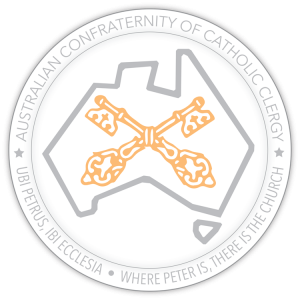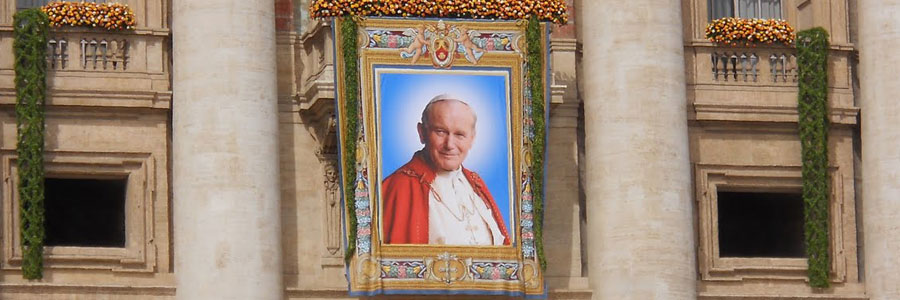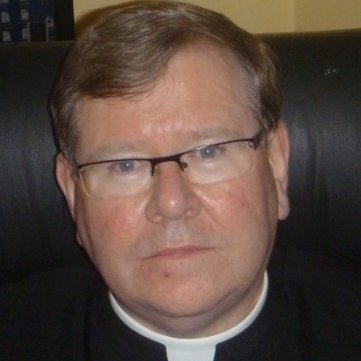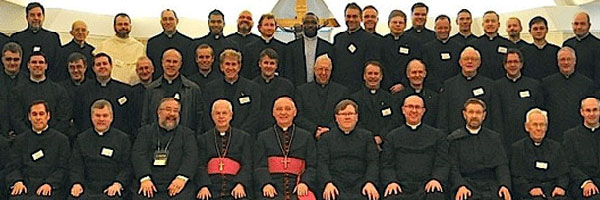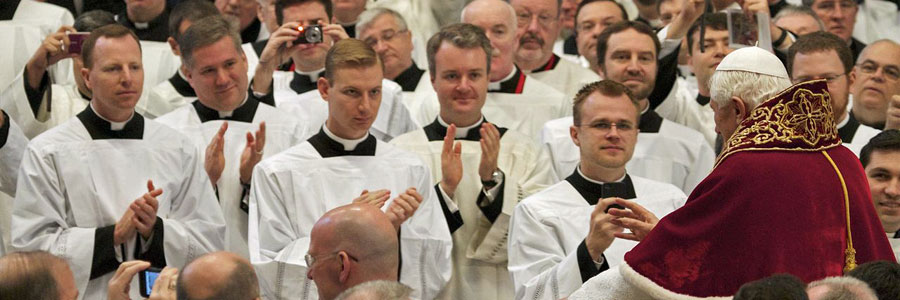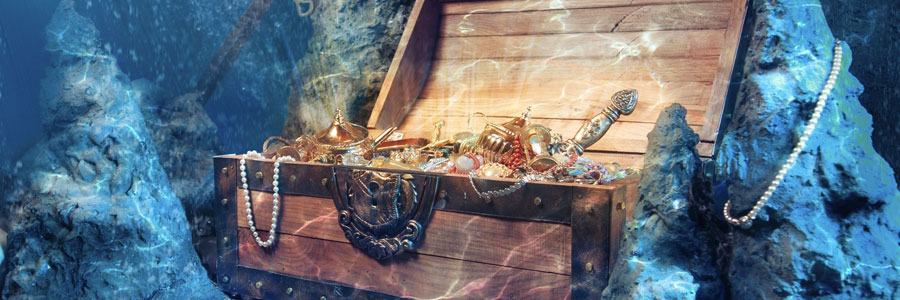As I write these few words, final preparations are well under way for the Beatification of the Venerable Pope John Paul II on May 1st. As you read these words we will be able to hail the late pope as Blessed John Paul II. So many of us who are priests have had our priestly lives marked in a particular way by the 264th successor of St Peter. He was pope for 26 years. I was ordained a priest during his pontificate and for 23 years after that he was my “sweet Christ on earth.” For our younger priests he was a major figure in their life of faith since their earliest years. The love with which he was held by so many of the faithful was evidenced in the extraordinary display of sorrow and affection at his funeral. His funeral brought together the single largest gathering in history of heads of state outside of the United Nations: kings, queens, presidents and prime ministers, 14 leaders of other religions, the Patriarch of Constantinople, the Archbishop of Canterbury, other Christian leaders and an estimated 4 million people! From the day of burial and following days, many made the cry “santo subito”. Many of the faithful saw in the life and example of Pope John Paul a heroic virtue that they believe warranted the declaration of his sanctity by the Church. And so six years later after the examination of his life and writings and with a miraculous cure attributed to his intercession, Pope Benedict XVI, his successor will beatify him. His feast day will be observed on October 22nd, the anniversary of his election as Supreme Pontiff.
The sanctity of Blessed John Paul II is commended to us to assist us in our life of faith. Let us not also forget the legacy that he has left to the Church. The beatification of Pope John Paul has prompted some to say that this year will be marked as “the year of Pope John Paul II.” This year would be a fitting way of beginning to digest and consolidate the contribution that Blessed John Paul has made to the Church’s patrimony.
We are well aware that the beatification of Pope John Paul is not being universally greeted with acclaim, even within the ranks of the clergy. Recent articles and letters in The Swag published by the National Council of Priests in Australia indicate that some of our brothers take issue with the person, teachings and acts of governance of the late pope. We may all have our own personal assessments and opinions regarding some practical decisions that this pope or any pope has made. It is less than worthy of a member of the clergy publicly to question the faith of the Church in the worship of the Blessed Sacrament, in the ontological nature of the ministerial priesthood and other matters of doctrine. It is because of positions such as these that are aired and even encouraged in a publication of an association of Catholic priests, that many priests cannot be associated with such an organisation.
I have always been struck by the way that Pope John Paul II reached out to the young and how he was received by them with respect and love. The young people of the Catholic community today, who are participants in the life of the Church or searching to find their place do not appear to have the negative reaction of some older members of the Church. Maybe this is because they are not reacting at all but simply looking for the “truth that will set them free.”
We hope in a future edition of The Priest to bring a focus on the inheritance and teaching of Blessed Pope John Paul II. What are some of the areas where John Paul has made a contribution and how will this be assimilated into the Church’s theological patrimony?
It is the disciplines of moral theology and theological anthropology where the lasting influence has been made. The encyclical letter Veritatis splendor will be perhaps the most important contribution that this pope has made to the moral teaching of the Church. His “theology of the body” will be teased out for decades to come regarding an understanding of the diverse dimensions of the human person and the most effective way of proclaiming the truth about man.
There is much in the life, writings and witness of Blessed John Paul that will be ongoing sources of inspiration and guidance for the children of the Church and for other men and women of goodwill.
I have made no mention of the claim by some that Pope John Paul II should be hailed as “the great”. This is a matter for reflection that only time will reveal. The rare practice of attributing to a Pope the title, “the Great” is given rarely and indicates that a particular pope was instrumental in shaping the future of society. In the decades to come more information will become available about the fall of the Soviet Empire and the Eastern Communist States. It will be only then that the full impact and importance of the influence of the Pontiff at that time will be known. History will be the judge of this one.
But as deacons, priests and bishops of the Church of God we have reason to rejoice that God raised up amongst us a “man from a far country” who gave his all “to confirm the brethren in the faith” and who called all to “open their hearts to Christ.”
May I invite all clerical members to make every effort to attend our Silver Jubilee conference to be held at Corpus Christi College in Carlton, Melbourne from June 20th to 24th? This will be a magnificent setting for this milestone Conference. I am overjoyed that Fr Marcus Holden, co-founder of the “Evangelium” project, will be our principal speaker. We could have no better speaker to address the theme of “the priest and evangelisation.”
I look forward to meeting you in Melbourne. Come, and invite another priest associate with you!
Yours in the Priesthood of Jesus Christ.
